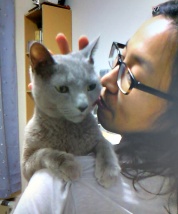Horoomon: the Japanese word for grilled offal, derived from "something to be thrown away." There were people who picked up discarded animal intestines and ate them—Koreans who moved to Japan during the Japanese colonial era. The Japanese looked down on them for grilling and eating offal, but today, it has become a beloved dish for all. For Zainichi Koreans who have lived in Japan, horomon carries the sorrows and history of their lives.
Less -

LEE Ilha